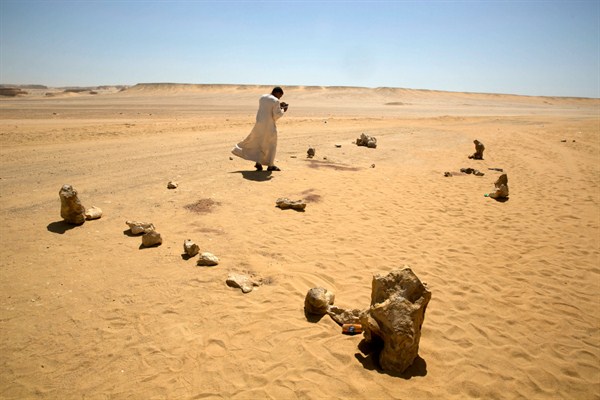On Thursday, an assault on a Sufi mosque in Egypt’s Sinai Peninsula killed 305 worshippers in what officials have called the deadliest terrorist attack in modern Egyptian history. The staggering number of victims was a sign of the shifting nature of violence in which Egypt has been mired for nearly five years. Militants in Sinai who have waged an insurgency against the government are expanding their campaign to include not just agents of the state, but a rapidly growing number of civilians.
The ongoing violence has weakened the position of the military-led regime of President Abdel Fattah el-Sisi, who came to power in a coup in 2013 promising to stabilize Egypt and shore up its flagging economy. As the scale and scope of recent attacks have escalated, the Egyptian public’s confidence in the ability of the government to bring things under control has steadily eroded.
While unmatched in terms of casualties, last week’s attack is part of a series of recent destabilizing incidents. A month ago, armed jihadis sent shockwaves through Egypt by ambushing a police convoy in the western desert. The Interior Ministry reported that 16 officers were killed, but other security officials said at the time that the death toll was closer to 60. The lack of transparency spurred a public backlash that pushed the government to fire more than a dozen of its most senior police and military officials, including the military chief of staff, Mahmoud Hegazy.

